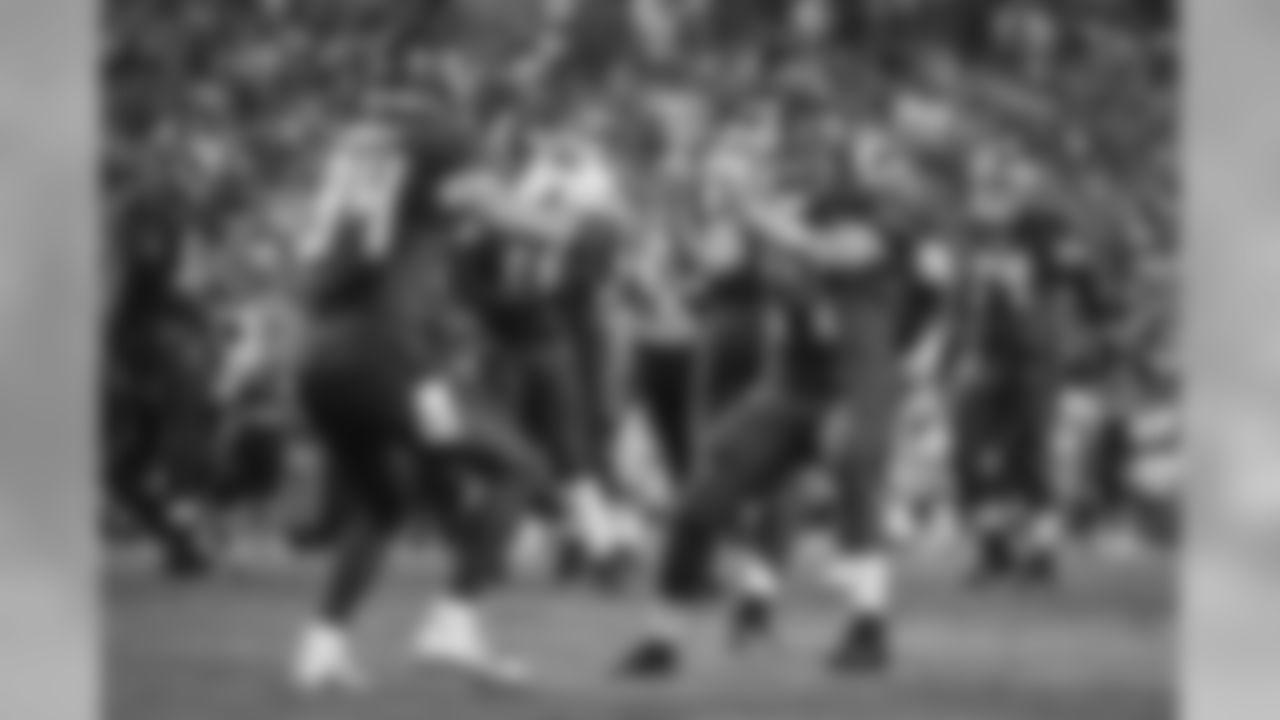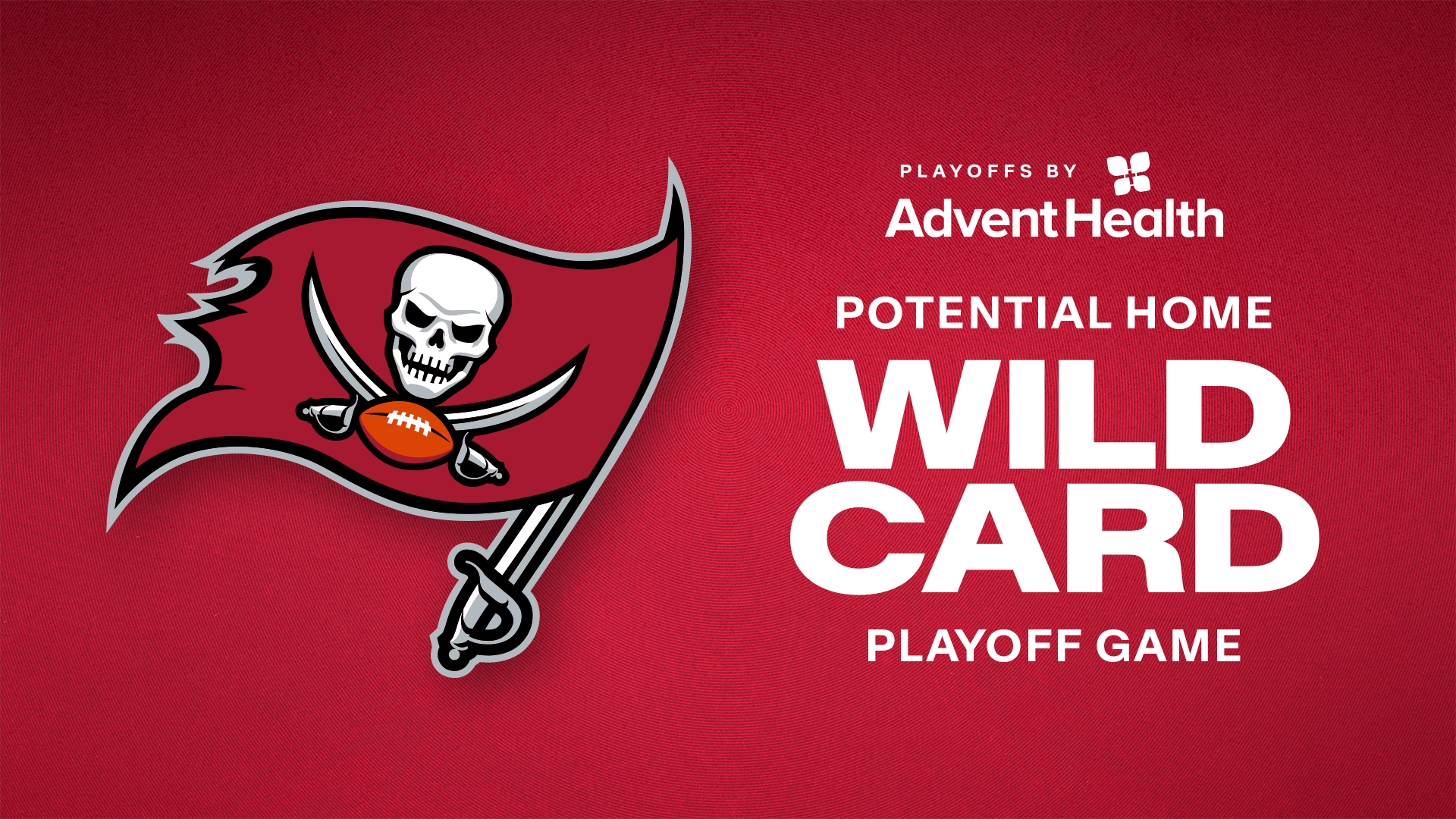View the top photos of the first quarter of the Buccaneers 2018 season from Team Photographer Kyle Zedaker.





































































The Tampa Bay Buccaneers thought they could sweep through the first quarter of the season with a perfect record and head into their bye week at 4-0. Most NFL analysts were decidedly less optimistic about the Buccaneers' first-quarter fortunes, particularly given how brutal their schedule looked on paper.
The actual result landed in between, as the Buccaneers are 2-2 and one game out of first in the NFC South. They started out with two high-scoring wins over New Orleans and Philadelphia, fell just short in a Monday night comeback against Pittsburgh and stumbled badly in a lopsided loss in Chicago. That obviously represents a good amount of ups and downs, both in the standings and in some of the more specific happenings on the field. In yesterday's Roundtable, Staff Writer Carmen Vitali and Team Reporter Casey Phillips joined me in considering the "ups" when we made our picks for the Bucs' Most Outstanding Player of the first quarter. Today we'll look at the "downs;" that is, what is the most pressing issue the team must resolve if it wants to post a winning record in the second quarter of the season?
Casey went first yesterday, so today we'll flip the order at the top and let Carmen go first. I'll be the anchor once again. As was previously noted, we are making a point not to duplicate picks in these Roundtable discussions, so even if there is one particularly obvious answer we'll discuss some other pressing topics as well. Start us off, Carmen.
Carmen Vitali: Pass Defense
The Bucs have eight sacks through four games of the NFL season, which actually ties them with every other NFC South team. By comparison, the Bucs had just four sacks through their first four games last season. Both Jason Pierre-Paul and Gerald McCoy rank near the top of the league this year in quarterback hits, with Pierre-Paul tied for the lead with nine. The Bucs' pass rush has seemingly started to improve, at least up front, but opponents are still putting up huge passing numbers against this defense as a whole. This is an issue. Opposing quarterbacks are averaging 358 passing yards and have an average passer rating of 125.0 when playing the Buccaneers. That's amounted to 13 touchdowns the Bucs offense has had to try to keep up with. Granted, they were successful in the first two games of the season and nearly had it in the third, but when opponents have such a successful passing attack, it obviously puts a lot more pressure on the offense to put up points. The Bucs have to improve in this area, but the million-dollar question, of course, is how.
The good news is, during this bye week the coaches will be doing a lot of self-scouting to reassess what the team could be doing differently. That will also give them an opportunity to look at what other teams are doing and if there's anything that can be applied to the Bucs from success stories around the league. It's likely the Bucs' defensive line and linebackers will be asked to shoulder more of the load with a secondary that is pretty young by most standards. It can work, though, and you don't need to look any further than the team's last opponent in the Chicago Bears for proof. They rely heavily on their front seven to bring pressure and disrupt the passing game that way. It puts them in the middle of the pack on passing defense, letting up an average of 230.5 yards through the air per game, but it's been good enough for a 3-1 record with an offense that isn't known for putting up a whole lot of points. Granted, they run a 3-4 versus the Bucs' 4-3 base defense but the point is that passing defense isn't all on the shoulders of the secondary and a more balanced effort from every level of the defense should serve the Bucs well going into the next 12 games of the season.
Casey Phillips: Running Game
Something that can help that pass defense Carmen talked about is keeping the opposing offense off the field. The best way to do that is eat up some clock with a running game, something the Bucs have yet to be able to get going.
The Bucs' run game is a little tough to analyze accurately since they have yet to play a game with a normal ebb and flow. Either the Bucs have been scoring at will thanks to their passing game and had no reason to turn to the run, or they fell so far behind early they were forced to play catch up with the passing game. While every offense wants to be balanced to a degree, I think this Bucs offense is well served relying more heavily on the passing game. So instead of arguing about how often the team should run, I believe the focus in the second quarter of the season should be to run more effectively and efficiently. The team is last in the league in the percent of runs that resulted in a first down. Their longest run is for 23 yards. The only rushing touchdown comes not from a running back, but from Ryan Fitzpatrick. And perhaps most importantly, they are tied for last in yards per carry.
Simply put, the team needs to be better when they choose to run, and I think it's possible to see an improvement sooner rather than later with the personnel at hand. First, Ronald Jones has the potential for growth now that he has seen live NFL action. He knows what an NFL hole looks like to hit, and now knows it may not be as big or open as long as a college hole. His knowledge of and comfort with the playbook will only grow. Plus, having more normal back-and-forth games will let the team stick to more scripted plays and be able to run in the situations and downs they dictate. And we know at least the left side of this offensive line seems quite strong. As that unit as a whole continues to build more chemistry and put an increased effort on run blocking, we should see more opportunities for big plays.
Scott Smith: Red Zone Offense/Defense
There's a reason I chose to go last in this Roundtable after also going last yesterday. Carmen and Casey hit the two biggest issues, one-two, as they should have. Had I been first or second, I would have felt compelled to do the same, and I seriously didn't feel like writing about either one again. Personally, I think the Chicago game was an aberration and the Bucs' pass defense will be relatively fine – if not necessarily top-10 material – going forward. Not sure about the run game, but then again I'm not sure it has to be that great in order for this offense to put up points. But I also know that there is reason for skepticism on both issues until it is proven on the field.
So, having side-stepped those issues, allow me to bring something else to your attention: The Buccaneers are not yet performing as well in an area they specifically identified as in need of improvement this offseason: red zone touchdown efficiency. Those discussions usually focused on the offense, but so far this year the results have not been there on either side of the ball.
After four games, the Buccaneers have a 50% touchdown rate on red-zone drives, which is tied for 22nd in the NFL. On defense, the Bucs are 31st, having allowed a touchdown on 92.3% of their opponents' incursions inside the 20. That includes a perfect seven-of-seven on drives that achieve a first-and-goal.
Overall, the Buccaneers rank third in the league in yards per game, but seventh in points. That latter number isn't bad, but it certainly could be better, and the Bucs might be 3-1 if it were. In yards, the Buccaneers are doing better than Atlanta, Kansas City and Baltimore, but in points they trail all of those teams. The reason: Kansas City, Baltimore and Atlanta rank second, fourth and seventh, respectively, in red zone TD percentage. It makes a difference.
After beating New Orleans and Philly to start the season, the Bucs lost a nail-biter to Pittsburgh, 30-27, on Monday night. In that game, Tampa Bay got into the red zone five times but came away with just two touchdowns. The other three drives produced two field goals and a deflected-ball interception. It's pretty easy to see how important those outcomes were in a three-point decision. After finishing 1-4 in three-point games last year, the Buccaneers understand how much difference a modest improvement in the red zone can make, and the goal is to be at 60%. That's easily doable from where the Bucs currently sit.
The defense has farther to go, but I think it's fair to say that's just a subset of the team's overall struggles on that side of the ball. And Carmen already covered that above.























